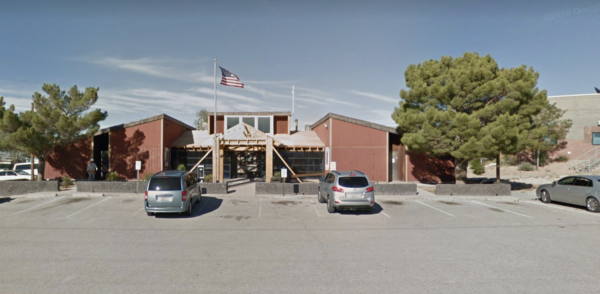
- Details
- By Tamara Ikenberg
PEACH SPRINGS, Ariz. — The Hualapai Tribe of northwestern Arizona has passed a temporary prohibition resolution to help keep its tribal members safe during the COVID-19 pandemic.
The Hualapai Tribal Council passed Resolution 44-2020 at a special meeting on June 25 as a way to “reduce public intoxication, domestic disputes in relation to alcohol consumption, minimize public activity, and to support efforts to slow the spread of COVID-19 and promote public safety,” according to the resolution.
The new resolution is really just a case of doubling down on an existing prohibition, due to the problems presented by Covid-19, said Hualapai Tribal Council Chairman Dr. Damon R. Clarke.
“The prohibition has been there forever, we’re just trying to enforce it,” Clarke said. “Our enforcement needs to be more strict around it.”
And although the resolution is deemed “temporary,” Clarke said, “It will never be lifted.”
Clarke said all tribes have a similar prohibition, and that the Navajo Nation is also currently working harder than ever to crack down on alcohol consumption on reservations for the same reasons.
Controlling the spread of coronavirus is crucial for the Hualapai, which has about 1300 tribal members on its reservation in northwestern Arizona near the Grand Canyon. With more than 100 cases of COVID-19 on the reservation — and 13 deaths — “almost ten percent of our population has been hit,” he said.
The penalties for alcohol use and abuse have not been altered for the new resolution, Clarke said.
A first offense for public intoxication results in 30 to 90 days of prison, and/or a fine of up to $300. Second time offenders will be removed from the reservation until they seek and complete treatment.
Possession of alcohol in a public place carries a first offender penalty of 30-120 days imprisonment, and/or a fine of up to $5,000. Penalty for second time offenders is the same as for public intoxication.
Those caught selling alcohol face up to 6 months in prison and/or fines up to $4,000.
Plus, The Hualapai Tribal Police are authorized to search homes and vehicles without a warrant. If any alcohol is found, it will be confiscated, and the possessors will be prosecuted.
Clarke said some of the issues that have increased during the pandemic are bootlegging and selling alcohol to youth. The reservation has gone on and off of lockdown since early May and has been under a stay-at-home order since early June.
Clarke said when the Stay-At-Home order was implemented and the lockdown lifted, incidences of public intoxication and domestic violence resurfaced.
He said more Tribal Police are desperately needed to enforce the prohibition.
“We need manpower,” Clarke said. “We don't have any tribal members who are police officers. We used to and we’re trying to reach out to our own people to become police officers, but we usually get them from the outside.”
More Stories Like This
Native News Weekly (August 25, 2024): D.C. BriefsUS Presidents in Their Own Words Concerning American Indians
Native News Weekly (December 21, 2025): D.C. Briefs
Native America Celebrates the Winter Solstice
Tlingit & Haida Launch New Foundation to Support Education, Wellness
Help us defend tribal sovereignty.
At Native News Online, our mission is rooted in telling the stories that strengthen sovereignty and uplift Indigenous voices — not just at year’s end, but every single day.
Because of your generosity last year, we were able to keep our reporters on the ground in tribal communities, at national gatherings and in the halls of Congress — covering the issues that matter most to Indian Country: sovereignty, culture, education, health and economic opportunity.
That support sustained us through a tough year in 2025. Now, as we look to the year ahead, we need your help right now to ensure warrior journalism remains strong — reporting that defends tribal sovereignty, amplifies Native truth, and holds power accountable.
 The stakes couldn't be higher. Your support keeps Native voices heard, Native stories told and Native sovereignty defended.
The stakes couldn't be higher. Your support keeps Native voices heard, Native stories told and Native sovereignty defended.
Stand with Warrior Journalism today.
Levi Rickert (Potawatomi), Editor & Publisher

